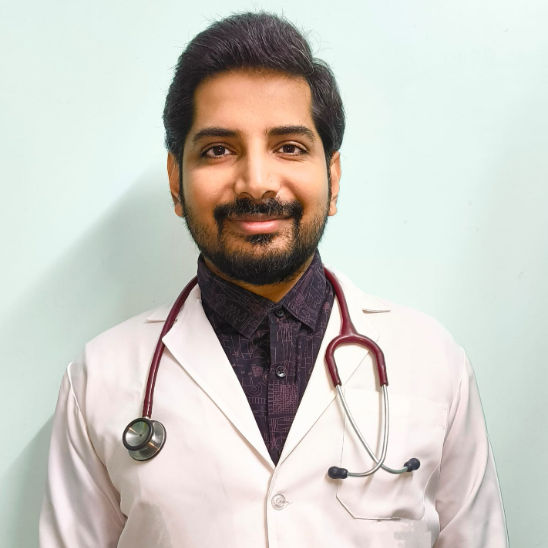How to Reduce Sleepiness?
Discover comprehensive strategies to combat sleepiness, from understanding sleep disorders and lifestyle modifications to stress management techniques and technological solutions.

Written by
Last updated on 3rd Jul, 2025
A majority of people are affected by sleepiness. It develops through interconnecting biological and environmental events that reduce productivity and personal well-being. The human body produces this protective reaction to express instinctive sleep needs, which arise directly from a lack of proper rest, adjusted schedules, and medical conditions.
This guide delves into treating sleep disorders, including behavioural adjustments, counselling about stress reduction, prescription and over-the-counter solutions and more.
Effects of Sleepiness on Daily Life
Sleepiness critically impairs mental performance. The reduced alertness makes it difficult to remain focused and makes learning more challenging:
Memory processes become hindered because people encounter difficulties in storing and recalling information.
Reaction times significantly slow down, creating safety issues, particularly for drivers on the road.
High sleepiness reduces one's decision-making ability, weakening cognitive flexibility and undermining problem-solving and creative thinking capabilities.
Continuous drowsiness causes multiple physical problems throughout the body. People experience elevated stress hormone production, which damages metabolic features and elevates their state of anxiety.
The immune system deteriorates, and people become more susceptible to diseases. In this regard, the combination of cardiovascular health risks leads to potential hypertension. Weight gain and insulin resistance develop when metabolic systems become dysregulated.
The decline in alertness also creates problematic emotional states that could intensify depression symptoms.
Identifying Sleep Disorders
There are several sleep disorders which can alter usual sleeping patterns, such as:
Obstructive sleep apnea results in breathing interruptions, which generate loud snoring throughout sleep.
Narcolepsy, a neurological condition, causes extreme daytime sleepiness and sudden sleep attacks.
Restless legs syndrome and shift work sleep disorder are two sleep conditions forming alongside other major sleep disorders.
Sleep disorders exhibit three main symptoms:
Continued daytime fatigue
Concentration issues
Unusual sleep schedule disruptions
Additionally, breathing problems throughout the night, together with sleep arousals and pointless awakenings which prevent further rest, indicate severe sleep disorders.
Tips for Reducing Sleepiness Through Lifestyle Changes
Following are some lifestyle changes that people can adopt to reduce sleepiness:
Having a set sleeping schedule enables one’s body to predict rest hours better, which allows easier nighttime sleep and enhanced morning refreshment.
Drinking caffeine in the morning to stay alert, but avoiding it after midday to prevent nighttime sleep disturbances.
Eating a combination of complex carbohydrates, lean proteins, and healthy fats helps sustain stable energy levels in one’s system.
Get nourishing snacks such as yoghurt with nuts and whole-grain crackers with protein to avoid sudden energy losses.
Hydration maintenance during the day strengthens brain operations while stopping dehydration from causing exhaustion symptoms.
Daily physical exercise leads to better sleep quality and daytime alertness, which combats sleepiness.
Physical exercise for 15 minutes or more produces instant improvements in energy levels, and routine workouts help maintain a proper sleep cycle.
Natural light during the morning to early afternoon helps people maintain a regular circadian rhythm.
Environmental Factors and Sleep Quality
Quality rest depends heavily on adequate preparation of a suitable sleep environment:
Expert opinions suggest that maintaining a temperature between 65-68°F/18-20°C in the sleep environment produces optimal sleep conditions.
Sleep patterns depend heavily on proper ventilation because contaminated air negatively affects sleep duration.
Soundproofing or using white noise machines can reduce noise disruptions, while blackout curtains can control light exposure.
Blue light from screens disrupts melatonin hormone production, which manages sleep-wake processes. The body requires a digital curfew at least one hour before bedtime to maintain natural sleep-wake cycles.
When device usage becomes necessary, blue light filter options and night mode functions should be activated on devices.
During digital detoxification, the brain automatically transitions into sleep mode, leading to a quicker onset and superior-quality rest throughout the night.
Managing Stress and Its Impact on Sleep
Effective stress management directly improves sleep quality:
Establishing regular exercise regimens automatically decreases stress hormones while building better sleep patterns. Time management alongside realistic goal-setting prevents sleep problems that stem from anxiety.
Mindfulness should be implemented to develop mental pathways between daytime functioning and nighttime relaxation.
The progressive muscle relaxation technique allows individuals to discharge tension starting in the toes and travelling slowly through all body parts.
Through the 4-7-8 deep breathing method, one can activate the parasympathetic nervous system to achieve relaxation.
Medical Treatments and Interventions
In case daytime sleepiness continues even after improving lifestyle habits, it is advisable to consult a healthcare professional:
Look out for both physical and mental warning signs, which include persistent fatigue, irregular sleep breathing patterns, unexpected sleep wakes, and constant changes to one’s mood.
Patients can use prescription wakefulness medication modafinil or armodafinil to treat narcolepsy alongside sodium oxybate therapy for treating both daytime sleepiness and cataplexy.
Medical care for sleep apnea involves continuous positive airway pressure (CPAP) therapy.
The current medical guidelines incorporate medication prescriptions alongside cognitive behavioural therapy to thoroughly treat sleep problems. They track medication reactions and make treatment adjustments according to patient needs.
Role of Technology in Sleep Improvement
The sleep technology of today allows users to track their vital measurements using wearable devices and smartphones, which monitor sleep patterns, heart rate, and breathing rhythms.
Sleep-tracking devices help users assess their sleep quality and duration to recognise sleep-disturbing patterns, which can lead to better sleeping routines.
Both smart mattresses and smart pillows now provide automatic support adjustments and environmental climate control features.
Specific apps provide personalised sleep recommendations, but users need to use these tools wisely to prevent the onset of more sleep-related anxiety. These rest-enhancement devices possess separate yet supporting functions that optimise restful sleep quality.
Scientific research demonstrates that white noise machines deploy constant background sounds to block intrusive noises, thus improving both sleep onset and quality.
Sleep pods deliver complete control through climate regulation, environmental light control, and noise management in their regulated containment systems.
The performance of these two sleep enhancers differs because white noise machines provide evidence-based benefits for standard users. Yet, sleep pods prefer expensive, less investigated solutions for people needing total sleep immersion.
Conclusion
Addressing sleepiness demands multiple simultaneous actions, which start by diagnosing elemental problems and developing successful implementation strategies. It also involves improving sleep quality and daytime alertness by maintaining a regular sleep schedule, daily exercise, lifestyle changes and managing stress. Individuals can also consider tracking sleep duration and quality with the help of sleep apps and other smart gadgets.
Consult Top General Physician
Consult Top General Physician

Dr. Lakshmi Sanjitha Kakani
General Physician/ Internal Medicine Specialist
6 Years • MBBS, MD (General Medicine)
Visakhapatnam
Apollo 24|7 Clinic - Andhra Pradesh, Visakhapatnam

Dr. Lakshmi Sindhura Kakani
General Physician/ Internal Medicine Specialist
10 Years • MBBS, MD (General medicine)
Visakhapatnam
Apollo 24|7 Clinic - Andhra Pradesh, Visakhapatnam

Dr. Praveen Kumar Mukka
General Physician/ Internal Medicine Specialist
21 Years • MBBS, MD General Medicine
Hyderabad
Apollo 24|7 Clinic - Telangana, Hyderabad

Dr. Hrishikesh Shivakumar
General Physician/ Internal Medicine Specialist
9 Years • MBBS, MD
Bangalore
Apollo 24|7 Clinic - Karnataka, Bangalore

Dr. Anshul Maheshwari
General Practitioner
5 Years • MBBS
Lucknow
Apollo 24|7 Clinic - Uttar Pradesh, Lucknow